Publication
Partner: Latvian Institute of International Affairs
Author: Aldis Austers, Karlis Bukovskis, Juraj Draxler, Brian Fabo, Vytautas Kuokštis, Michal Mudroň, Vitalis Nakrošis, Ryszard Petru, Zoltán Pogátsa, Michal Rot, Viljar Veebel, Ramūnas Vilpišauskas
Uploaded: Feb 22, 2016
Language: English

The financial instability and economic problems in the so called eurozone countries and in the European Union (EU) in general have tormented decision makers and challenged experts and businesses to find the proper, most sustainable and stabilising solutions to the situation. The European economic crisis, as it is sometimes labelled, started around 2008 and is considered to be over by represenatives of some EU countries and EU institutions. Many European Union member states in 2014 still face the realities of unemployment, cuts in public expenditures, stabilisation and the “stress-testing” of the largest banks, and of course the economic restructuring that would lead to a return to dynamic and sustainable economic growth.
This book, “The Politics of Economic Sustainability: Baltic and Visegrad Responses to the European Economic Crisis”, is dedicated to observing and discovering the economic, financial, social and political results of the European economic crisis in one particular group of EU member states: the three Baltic States (Latvia, Lithuania and Estonia) and the four Visegrad countries (Hungary, Slovakia, the Czech Republic and Poland). The book seeks to define and explain the Baltic and Visegradic responses to internally and externally caused political and economic problems since 2008.
... More information
Keywords: Economic Security, EU, Slovakia, Czech Republic, Hungary, Poland, Europe
Publications
Jul 09, 2018 / Tomáš Čižik, Ingrid Borárosová
The publication “The Future Revolutions in Central and Eastern Europe” represents the collection of views of experts from the different field of expertise – foreign and security policy, migration, political science, history and information warfare. The id
Propaganda/Disinform, V4, Poland, Hungary, Czech Republic, Slovakia, EU, NATO
Feb 27, 2018 / Martin Jirušek
Analysis of natural gas sectors in the South-Eastern Europe and the role of Russia in natural gas supplies to the region
Feb 27, 2018 / Martin Jirušek, Tomáš Vlček
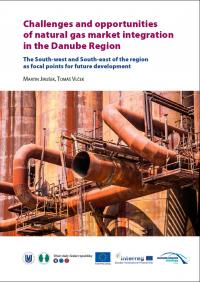
Analysis of challenges to the gas market integration in the Danube Region (SEE)
Feb 22, 2018 / Veronika Bílková
Analysis of the signs indicating, that the privileged position of the Big Five is no longer accepted without reserves.
Feb 22, 2018 / Veronika Bílková
The way Israel claims Jerusalem, which is by the majority of the international community considered to be the capital of both states. Critical examination of the arguments of the Trump administration for relocating the US embassy from Tel Aviv to Jerusale
Feb 22, 2018 / Miroslav Tůma
International law reflection of Miroslav Tůma, analyzing the Iran nuclear deal
Feb 22, 2018 / Michael Eric Lamber
Moscow’s new ‘fifth-generation’ fighter project is an over-priced and under-competitive counterpart to US and Chinese designs, but it raises policy questions for Europe
Feb 22, 2018 / Tamar Lagurashvili
Invented Traditionalism vs. Entrenched Informal Institutions: Viability of Hybrid Governance and Democratization Prospects in Botswana, Lesotho and Swaziland
Feb 22, 2018 / Nicolò Fasola
The aim of this paper is to identify the enduring principles at the basis of Russian military thought, offering an alternative to the contemporary analytical mainstream – which deems Moscow’s military behavior to be revolutionary and unprecedented.
Feb 22, 2018 / Lukáš Tichý, Nikita Odintsov, Jan Mazač, Jan Prouza, Michaela Prouzov
There are almost no oil or gas resources in the EU. To strengthen its energy security, the EU has taken a number of measures in its energy policy. To find out which measures these were read the policy paper of our Centre for Energy Policy.
Feb 20, 2018 / Dr. Katarzyna Pisarska, Senior Fellow at Foreign Policy Programme of Casimir Pulaski Foundation
There is an urgent need for the EU to step up and deliver in the field of security, in order for the organization to remain relevant and meet the needs of EU citizens.
Jul 26, 2017 / Veronika Bílková
The Use of Chemical Weapons in Syria and the US Strike
Jul 26, 2017 / Nicolò Fasola
Russia’s next wargames do not mean war is coming
Jul 26, 2017 / Ezy Sassoon
NATO's response must consider both military and political dimensions of Russia's renewed nuclear assertiveness
Jul 26, 2017 / Luboš Fendrych
NATO´s Defence Posture to Russia after the Warsaw Summit
Jul 26, 2017 / Jan Daniel, Markéta Wittichová
The small and medium European states need to face the unexpected challenges to be effectively involved in UN peacekeeping missions
Jul 26, 2017 / Michal Šimečka
Demands for permanent deployment of NATO troops on the Alliance’s Eastern Flank risk divisions at a time when political unity is at a premium.
Jul 26, 2017 / Jan Daniel
Only by supporting a long-term political solution to the Libyan conflict can the EU address the migration crisis
Jul 24, 2017 / Tamás Lattmann
What keeps states in a similar structure, what makes them seriously consider a withdrawal, and what is the possible future of the International Criminal Court (ICC)?
Jul 11, 2017 / Author: Grzegorz Rdzanek, PhD, Research Fellow of the Casimir Pulaski Foundation
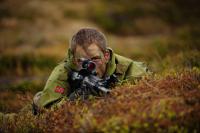
Actions taken by the authorities in Oslo for the development of the defense system may be regarded as a model of how to plan qualitative and quantitative changes in the country’s armed forces and structures of military security.
Apr 25, 2017 / Tomáš Čižik (ed.)
The idea of writing this book was influenced by the fact that since March 2014 European and Eastern European countries are facing a massive onslaught of Russian information warfare, whose main goal is to undermine the trust of citizens in the political el
Hybrid Warfare, Propaganda/Disinform, Europe, V4, Media, Democracy, EU, Russia, NATO
Apr 07, 2017 / Veronika Bílková
The first hearing in the dispute between Ukraine and the Russian Federation was held at the International Court of Justice (ICJ) in the Hague on 6th-9th March 2017. The hearing did not relate to the substance of the dispute, but to the request by Ukraine
Apr 03, 2017 / Tomáš Čižik
Centre for European and North Atlantic Affairs (CENAA) gladly presents the latest issue of the CENAA Analysis “Information Warfare as a Geopolitical Tools” written by our director Tomáš Čižik.
Apr 03, 2017 / Mark Galeotti
Russian spies do not simply gather information, but seek directly to undermine European solidarity, and require a response to match.
NATO, Russia, EU, Czech Republic, Ukraine, Europe, Propaganda/Disinform, Hybrid Warfare
Mar 21, 2017 / Diána Szőke
The study aims to explore the context and contents of the recent high-level intergovernmental summit on tackling anthropogenic climate change, which was held in Paris under the auspices of the United Nations last December, and to evaluate its potential co
Mar 21, 2017 / Máté Szalai, Péter Wagner
The analysis aims to present the different frameworks of interpretations regarding the Orlando shooting and to highlight the importance of the differentiation between terrorism and “traditional” crimes. The case sheds light on the tendency of the “inflati
Mar 21, 2017 / János T. Barabás
According to the US Department of Defense the traditional way of resolving conflicts, especially by military means becomes less and less viable due to social, economic, and information related developments. Non-state actors now have access to inexpensive
Mar 16, 2017 / Gábor Vörös
With the election of a new pro-independence president in Taiwan, the current détente in the cross-strait relations is likely to fade away. If Taiwan chooses to proclaim independence, it could invite a Chinese invasion and possibly lose the support of the
Mar 16, 2017 / Katalin Ertsey, Diána Szőke
The rise of populist authoritarianism is an overwhelming phenomenon in Western democracies. The study examines its common roots and looks at how this plays out in various countries of the Nordic region.
Mar 10, 2017 / Tomasz Smura, Head of the Research Office at the Casimir Pulaski Foundation
Russia has been increasingly using the A2AD measures. The goal of this concept is to prevent an opponent from entering into theater (Anti-Access) by means of long-range weapons, and deprive him of freedom of action in this theater (Area-Denial) by means o
Mar 03, 2017 / Riina Kaljurand, Tony Lawrence, Pauli Järvenpää, Tomas Jermalavicius
The report identifies a range of possible post-Brexit scenarios as a vehicle for testing policies and identifying those likely to result in maximum benefit and minimum cost.
Mar 03, 2017 / Tony Lawrence, Tomas Jermalavicius, Anna Bulakh
In this report, commissioned by Ireland’s Department of Foreign Affairs and Trade, ICDS researchers examine the role of small states in United Nations peacekeeping through the lens of UNIFIL.
Mar 03, 2017 / Anna Bulakh
Russia’s recent decision to grant official recognition of civil documents issued in the self-proclaimed people’s republics of Luhansk and Donetsk (LNR and DNR) starting from February 18, 2017 is incompatible with the Kremlin’s official denial of its direc
Hybrid Warfare, Europe, Ukraine, EU, Russia, NATO, Global Security
Mar 03, 2017 / Maxime Lebrune
These opening remarks at the 53rd Munich Security Conference (MSC) by conference chairman Ambassador Wolfgang Ischinger set the tone of the event by spelling out the gravity of the situation. Indeed, it has become hard to predict the evolution of American
Global Security, USA, NATO, Russia, EU, Ukraine, Democracy, Europe
Jan 31, 2017 / Tomasz Otłowski, Senior Fellow at the Casimir Pulaski Foundation
The Trump administration would likely be pro-Israeli and definitely anti-Iranian (perhaps even anti-Shiite). This means a significant reverse of the vectors of American foreign policy towards a number of regional problems.
Jan 24, 2017 / Slovak Space Policy Association
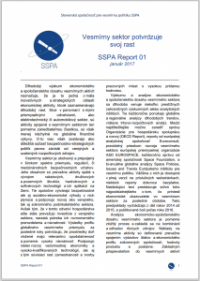
Study mapping contemporary trends in global space sector from the perspective of policy and economy.
Jan 22, 2017 / Radoslava Haršányová, Marek Hrušovský
Centre for European and North Atlantic Affairs (CENAA) gladly presents the latest issue of the CENAA Analysis “Current Trends in Jihadist On-line Magazines” written by Radoslava Haršányová and Marek Hrušovský from University of Ss. Cyril and Methodius in
Jan 22, 2017 / Viera Žúborová
Centre for European and North Atlantic Affairs (CENAA) gladly presents the latest issue of the CENAA Analysis “Central Europe on the Road to Illiberalism” written by Viera Žúborová from University of Ss. Cyril and Methodius in Trnava.
Jan 16, 2017 / Martin Michelot
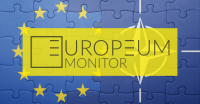
The new issue of the Brussels Monitor series by Martin Michelot deals with EU-NATO cooperation in the context of the European Union Global Strategy.
Jan 16, 2017 / Martin Michelot
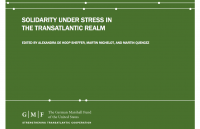
Martin Michelot is co-author of policy paper which is part of entire series developed by the German Marshall Fund of the United States. The series focuses on current challenges of transatlantic cooperation.
Jan 16, 2017 / Matthieu Crévecoeur
Matthieu Crévecoeur continues to analyse the current situation in the Middle East with connection to the suspended peace talks in Genève. He underlines the importance of solidarity and courage which should be demonstrated by the EU in order to make the pe
Jan 16, 2017 / Věra Říháčková

EUROPEUM Institute for European Policy is one of the authors of the document commissioned by the Heinrich-Böll-Stiftung offices in Prague and Warsaw about the differing reactions of individual Visegrad countries on the Russia-Ukraine Conflict.
Jan 16, 2017 / Matthieu Crévecoeur
Europe, specifically the European Union, is now facing more pressing challenges than ever. Read a blog by Matthieu Crévecoeur in which he emphasizes the importance of staying united on both domestic and European level.
Jan 16, 2017 / Christian Kvorning Lassen
Christian Kvorning Lassen's follow-up blog about the three major obstacles that need to be overcome before a parallel agreement can be a reality, which seems highly unlikely, as he outlined in previous post.
Jan 16, 2017 / Christian Kvorning Lassen
Following the announcement of Sweden and Denmark to re-introduce border controls in the light of the refugee crisis, Christian Kvorning Lassen looks at the broader implications of this move and the future of the Schengen area.
Jan 16, 2017 / Matthieu Crévecoeur
In the wake of the November 13 Paris attacks, French president Francois Hollande decided to intensify the French military operations to a level politically and financially unbearable in the long term.
Jan 16, 2017 / Martin Michelot
What should be Europe´s response to terrorism? Read the comprehensive article written by Martin Michelot from EUROPEUM and Benjamin Haddad from Hudson Institute.
Global Security, NATO, EU, Syria, Europe
Jan 16, 2017 / Christian Kvorning Lassen
The refugee crisis has highlighted hitherto latent divisions within the EU, particularly amongst the V4 countries and Western Europe. The division is, at first glance, rooted in fundamentally differing perceptions of the crisis, giving rise to several my
Jan 16, 2017 / Christian Kvorning Lassen

How politicians in the Czech Republic and Hungary react on the migration crisis? A what myths are currently related to migration in those countries? New blog by Christian Kvorning Lassen.
Jan 16, 2017 / Martin Michelot
Will the V4 countries find a common ground with the
EU, Slovakia, Czech Republic, Hungary, Poland, Europe, Migration, Balkan
Jan 16, 2017 / Tereza Novotná

Policy brief by Tereza Novotná - summarizing and assessing the first year of Federica Mogherini as HRVP.
Jan 09, 2017 / Antall József Knowledge Centre
The first issue of the Antall József Knowledge Centre's new journal In Focus commemorates the 25th anniversary of the Visegrad Cooperation. Articles and interviews are analysing the history of the cooperation and those current social and political process
EU, Slovakia, Czech Republic, Hungary, Poland, V4, Europe, Migration
Dec 16, 2016 / Tomasz Smura, the Head of Analysis Bureau at the Casimir Pulaski Foundation
Elections in the U.S. may have big implications for its allies, as the new administration may, as announced by Donald Trump during the election campaign, try to reduce the U.S. commitment in the world.
Global Security, USA, NATO, Asia, Europe
Dec 08, 2016 / Jakub Eberle, Vladimír Handl
The aim of this policy paper is to open a debate on the long-term strategy of Czech foreign policy towards Germany, and discuss its close relation to its European context.
Dec 08, 2016 / Miroslav Tůma
Can the Necessary International Legal Framework to Achieve a Nuclear-WeaponFree World Be Reached? The answer to this question can, to a certain extent, be found in the significant resolution of the First Committee (Disarmament and International Security C
United Nations, Russia, USA, Nuclear, Global Security, Energy Security
Nov 21, 2016 / Ed. by Diāna Potjomkina, Andris Sprūds, Valters Ščerbinskis
[in Latvian] volume reviewing the main ideas and associated personalities behind Latvia's foreign policy over 1918-2016
Nov 16, 2016 / Tomáš Hrozenský
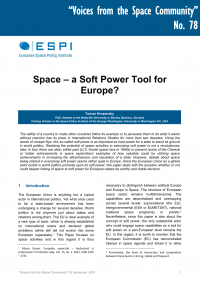
European Space Policy Institute's "Voices from the Space Community” No. 78
Nov 11, 2016 / Lucius Klobučník
This paper purports to answer challenging questions of legal issues connected with mining in outer space. It addresses the problem of technical feasibility of a mining venture in outer space and tries to analyze international space law applicable to such
Nov 11, 2016 / Tomáš Hrozenský
Outer space has become a contested, congested and competitive domain with an ever growing importance to life on Earth. Recently, an increasing number of new players have entered the space arena. Slovakia has also stepped up its space related activities.
Nov 11, 2016 / Peter Pindják
The recently unveiled EU Global Strategy for Foreign and Security Policy presents bold and ambitious plans in several increasingly important domains for Europe, including outer space. The EU has committed itself to securing an autonomous access to space,
Oct 30, 2016 / Ed. by Andris Sprūds, Diāna Potjomkina
This Riga Conference companion volume offers reflections on the complex developments and future of the broader Trans-Atlantic area.
Economic Security, Global Security, USA, NATO, Russia, EU, Media, Europe, Great Britain, Propaganda/Disinform, Hybrid Warfare
Oct 08, 2016 / Ed. Karlis Bukovskis
The book “Euroscepticism in Small EU Member States” is an effort by an international team of analysts to address the Euroscepticism phenomenon in small European Union Member States.
Sep 22, 2016 / Ed. by Peter Jančárik, Adam Reichardt, Roman Shutov, Ivana Smoleňová
This paper is a summary of a series of closed-door expert roundtables of the event "Countering Pro-Russian Disinformation: Current Challenges and the Way Forward" that took place in Prague on May 31, 2016.
Sep 17, 2016 / Ed. by Andris Sprūds, Diāna Potjomkina
This is a follow-up publication to the annual Riga Dialogue conference that endeavours to reflect the recognisable diversity of perceptions and interests among a variety of stakeholders in the Euro-Atlantic area, and offer insights for increasing mutual t
Global Security, Nuclear, USA, NATO, Russia, EU, Ukraine, Europe
Aug 26, 2016 / Ed. by Aldis Austers, Ilvija Bruge, Andris Spruds
This book provides theoretical and practical insights of the Europeanisation transformations taking place in the Eastern Partnership countries and discusses how the economic ties between the EU and the partners affect these transformations.
Aug 12, 2016 / Jakub Jakóbowski, Marcin Kaczmarski
China joined the World Trade Organisation (WTO) in 2001 as an economy which was undergoing transformation and did not yet have market economy status (MES). This enabled other WTO members, including the European Union, to be more flexible in imposing anti-
Jul 18, 2016 / Piotr Woyke
The Russian annexation of Crimea in 2014 put a stop to the gradual scaling down of US military engagement in Europe, a policy that the United States had pursued since the end of the Cold War.
Jul 15, 2016 / Marek Menkiszak, Piotr Żochowski
Political reactions from Russia have so far been negative, if rather moderate.
Jul 01, 2016 / Witold Rodkiewicz
The official Russian reactions to Brexit have been cautious in assessments and sober in tone, while the reactions in the media, reflecting the mood in the Russian political establishment, have been close to euphoric.
Jun 22, 2016 / Konrad Popławski
The latest results from the Visegrád Group states show them to be Germany’s most important trading partner, and their balance of trade in goods is in a state of equilibrium.
Jun 14, 2016 / Marta Szpala
Politicians in Kosovo and Serbia see the dialogue through the prism of the benefits they can get from Brussels and the EU member states in exchange for compromises.
Jun 02, 2016 / Mateusz Seroka
Montenegro’s accession to NATO will be the apogee of the pro-Western policy of their Prime Minister Milo Djukanovic who has been in power since 1991.
May 26, 2016 / Ed. by Andris Spruds, Diana Potjomkina
Thorough reassessment of and recommendations for the Latvia-US strategic partnership
Energy Security, Global Security, Oil and Gas, USA, NATO, Russia, EU, Ukraine, Democracy, Media, Education, Europe
May 12, 2016 / Marcin Kaczmarski
Chinese elites do not treat Europe as an equal partner and are convinced that China holds the upper hand over Europe.
Apr 29, 2016 / Aliaksei Kazharski
CEPI’s monthly digest of news and analysis regarding Ukraine
Apr 29, 2016 / Milan Nič and Katarína Kertýsová.
Kosovo`s prospect for state building and economic development continues to be hampered by limited international recognition of the independence
Apr 29, 2016 / Alena Kudzko
CEPI’s monthly digest of news and analysis regarding Russia
Apr 29, 2016 / Aliaksei Kazharski
CEPI’s monthly digest of news and analysis regarding Ukraine
Apr 28, 2016 / Adam Balcer,Dániel Bartha, Edit Inotai and Lucia Najšlová
Central Europe’s leading experts share their views on the EU deal with Turkey
Apr 28, 2016 / Filip Tuček
The assessment of Russia’s military achievements and limitations to make optimal policy decisions
Apr 28, 2016 / Milan Šuplata, Péter Krekó, Jakub Janda, Adam Petrikovič, Lóránt Győri, Veronika Víchová
CEPI`s March Information War Monitor elaborates on this month`s relevant topics elaborated on by the pro-Kremlin propaganda machine
Apr 28, 2016 / Pawel Zerka, Martin Michelot and Dániel Bartha
Three top young foreign policy experts in the region’s capitals share thier views on a growing fragmentation in Europe
Apr 28, 2016 / Tadeusz A. Olszański
The consequences of the Chornobyl nuclear power plant disaster are still a permanent element of the economic, environmental and social situation of Ukraine.
Apr 27, 2016 / Eastern Europe Studies Centre
Report of the International Security Experts Conference “EU Global Strategy: Eastern Partners in European Security” held on March 2-4, 2016 in Vilnius, Lithuania, provides recommendations for the ongoing debate on the new EU Global Strategy on Foreign and
Apr 19, 2016 / Alyona Getmanchuk, Sergiy Solodkyy
The analytical paper "Ukraine-Germany Relations: How to Turn Situational Partnership into Priority One" is a part of IWP new ambitious initiative “Ukraine’s Foreign Policy Audit” that will cover Ukraine’s relations with its strategic partners. As a result
Apr 18, 2016 / Monika Zborowska, analyst of the ‘Economy and Energy’ program of the Casimir Pulaski Foundation
The project aims to strengthen Russia’s position as a major supplier of energy to EU countries, and brings with it a great deal of economic and geopolitical consequences for Europe.
Europe, V4, Poland, Russia, Oil and Gas, Economic Security, Energy Security
Mar 31, 2016 / Anna Bulakh, Jordan Kearns, Emmet Tuohy
ICDS researchers took a close look at the Estonia’s energy security, current challenges it faces to meet the climate targets and possible outcomes of the climate policies implementation on security of energy supplies and sustainability.
Europe, Ukraine, Poland, Czech Republic, EU, Oil and Gas, Energy Security
Mar 31, 2016 / Helga Kalm, Jüri Luik, Anna Bulakh, Piret Pernik, Henrik Praks
ICDS research fellows provide recommentation for the new EU Global Strategy.
Migration, Europe, Asia, Africa, Democracy, Ukraine, Syria, Middle East, EU, Russia, Global Security
Mar 25, 2016 / Jakub Jakóbowski
The government’s extensive programme for stimulating the economy maintains high economic growth but it also has negative side-effects.
Mar 10, 2016 / Multiple Authors
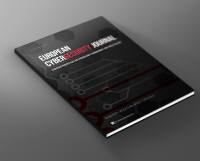
Holistic overview of the most recent cybersecurity matters from jurisdical, technological and military perspective. Next issue of the ECJ will be released in April.
Cyber Security, Global Security, NATO, EU, Poland, Education, V4, Europe
Mar 04, 2016 / Marta Szpala, Kamil Frymark
Actions taken by the Balkan countries, despite German criticism, may make it easier to develop comprehensive EU solutions to the migration crisis.
Feb 23, 2016 / Rafał Ciastoń, Col. (Ret.) Jerzy Gruszczyński, Rafał Lipka, Col. (Ret.) dr hab. Adam Radomyski, Tomasz Smura
This report takes a closer look at Poland’s air defence system, one of the cornerstones of state defence and security in general.
Feb 22, 2016 / Norbert Beckmann-Dierkes, Andris Sprūds, Toms Rostoks, Kristīne Bērziņa, Alyson Bailes, Margrét Cela, Katla Kjartansdóttir, Kristinn Schram, Lassi Heininen, Piotr Kościński, Wojciech Lorenz, Lidia Puka, Stefan Steinicke, Steffen Weber, Mārtiņš Vargulis,

The Arctic is on the rise. Despite the recent events in Ukraine and the Russian annexation of Crimea that have shaken the Euro-Atlantic security architecture, there is no denying that, even if temporarily sidelined, the importance of the High North in glo
Feb 22, 2016 / Aldis Austers, Karlis Bukovskis, Juraj Draxler, Brian Fabo, Vytautas Kuokštis, Michal Mudroň, Vitalis Nakrošis, Ryszard Petru, Zoltán Pogátsa, Michal Rot, Viljar Veebel, Ramūnas Vilpišauskas

The collection of articles entitled “The Politics of Economic Sustainability: Baltic and Visegrad Responses to the European Economic Crisis” is an attempt by an international collection of authors to explain the political economy of the long and winding r
Economic Security, EU, Slovakia, Czech Republic, Hungary, Poland, Europe
Feb 22, 2016 / Aldis Austers

Latvia is a country of extreme contrasts. Twenty-two years of independence have brought periods of both high growth and deep slumps. The general trend of economic development has been positive since the early 1990s, more and more people have enjoyed enhan
Feb 19, 2016 / Andris Sprūds, Viljar Veebel, Kārlis Bukovskis, Aldis Austers, Imants Lieģis, Raimonds Rublovskis, Mārtiņš Vargulis, Diāna Potjomkina, Anna Beitāne, Mārtiņš Daugulis

The Latvian Institute of International Affairs launches its first annual Foreign Policy Yearbook to address the issue of continuity and change in Latvia’s foreign policy. Although this analytic endeavour brings together authors with a diversity of backgro
Feb 19, 2016 / Māris Andžāns, Andrei A. Kazantsev, Diāna Potjomkina, Heidi Reisinger, Gulshan Sachdeva, Zaur Shiriyev, Andris Sprūds, S. Frederick Starr, Farkhod Tolipov, Guli I. Yuldasheva

The aim of this publication is to analyze, raise awareness of and provide recommendations regarding the impact of the Northern Distribution Network (NDN) on NATO in general and Latvia in particular. The approach chosen by the LIIA is a broad one, taking
Feb 19, 2016 / Māris Andžāns, Andrei A. Kazantsev, Diāna Potjomkina, Heidi Reisinger, Gulshan Sachdeva, Zaur Shiriyev, Andris Sprūds, S. Frederick Starr, Farkhod Tolipov, Guli I. Yuldasheva

The aim of this publication is to analyze, raise awareness of and provide recommendations regarding the impact of the Northern Distribution Network (NDN) on NATO in general and Latvia in particular. The approach chosen by the LIIA is a broad one...
Feb 19, 2016 / Irina Kuzņecova, Diāna Potjomkina, Mārtiņš Vargulis

The Eastern Partnership (EaP) initiative was officially launched by the European Union at the Prague summit in 2009. It was aimed at putting the region back into the EU’s spotlight and opening up new mechanisms for cooperation, including a multilateral di
Feb 18, 2016 / Andrei Yeliseyeu
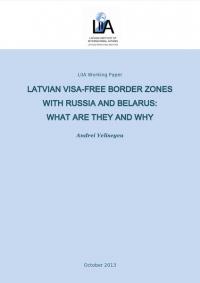
After the launch of the local border traffic (LBT) regime with Russia in June 2013, Latvia became the second EU country, after Poland, that has effective LBT agreements with two neighboring countries. A number of the EU countries (Hungary, Slovakia, Roman
Feb 18, 2016 / Aldis Austers, Kārlis Bukovskis, Kai-Olaf Lang, Andris Sprūds
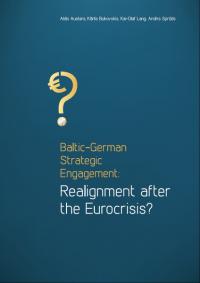
“Baltic-German Strategic Engagement: Realignment after the Eurocrisis?” is a research publication focusing on the potential changes to the relationship between Germany and the Baltic States in the context of the financial and economic problems in the Euro
Feb 18, 2016 / Prague Centre for Transatlantic Relations (PCTR)

PCTR Newsletter
Energy Security, Economic Security, Nuclear, USA, NATO, Russia, EU, Middle East, Czech Republic, Syria, Ukraine, Israel, Europe, Migration
Feb 14, 2016 / Daunis Auers, Reinis Āboltiņš, Mārtiņš Daugulis, Anand Melon, Arkady Moshes, Ramūnas Vilpišauskas

Volatile political and economic environment in the European Union in the beginning of 2016
Feb 10, 2016 / Alena Kudzko
CEPI’s monthly digest of news and analysis regarding Russia: January 2016
Feb 10, 2016 / Jaroslav Naď, Milan Šuplata, Marian Majer.
Reflecting on “DAV4 Full Report: Towards a Deeper Visegrad Defence Partnership” and its recommendations
NATO, EU, Slovakia, Czech Republic, Hungary, Poland, V4, Europe
Feb 01, 2016 / Tomasz Otłowski
The attacks in Paris on 13 November 2015 will contribute to major changes in the socio-political climate in the European Union and affect the future of the European integration process.
Jan 28, 2016 / Marcin Kaczmarski
China has reacted positively to Russia’s military intervention in Syria.
Jan 21, 2016 / Andrej Chovan
The “Trends of Visegrad Foreign Policy” project provides a chance to examine the perceptions of Slovak policy makers and researchers and compare them with those of their Czech, Polish and Hungarian counterparts.
V4, Poland, Hungary, Czech Republic, Slovakia, EU, Russia, Energy Security
Jan 21, 2016 / Alena Kudzko
CEPI’s monthly digest of news and analysis regarding Russia: December 2015
Jan 21, 2016 / Wojciech Górecki, Wojciech Konończuk
Since the end of 2015, talks and contacts between Russia, Ukraine, the EU and the USA on the conflict in the Donbass have become more intensive.
Jan 19, 2016 / Prague Centre for Transatlantic Relations (PCTR)

PCTR Newsletter
Global Security, USA, NATO, Russia, EU, Middle East, Czech Republic, Poland, Syria, Ukraine, Democracy, Media, V4, Europe, Afghanistan
Jan 19, 2016 / Ed. by Andris Sprūds, Ilvija Bruģe

Comprehensive review of Latvian foreign and security policy in 2015 and recommendations for 2016
Cyber Security, Economic Security, Global Security, USA, NATO, Russia, EU, Middle East, Syria, Ukraine, Media, Asia, Europe
Jan 04, 2016 / Izabela Albrycht, Karsten Geier, Artur Kołosowski, Rob van Kranenburg, dr Martin Libicki, prof. Jarno Limnell, Rafał Magryś, Tomasz Niewdana, Piret Pernik, prof. Oleksandr Potii, dr Joanna Świątkowska, prof. Rolf H. Weber, Agnieszka Wiercińska-Krużewska
Second issue of the European Cybersecurity Journal - quarterly publication devoted to cybersecurity
Cyber Security, Global Security, EU, Poland, Ukraine, Europe
Jan 04, 2016 / Agata Biernat, Research Fellow at the Casimir Pulaski Foundation
The EU should find a way to include the Balkan countries in the decision-making process on a joint solution to the migration crisis. These countries have declared their wish to co-create European solidarity, and take their share of responsibility for this
Dec 31, 2015 / Tadeusz A. Olszański, Tadeusz Iwański
Ukrainian politics is currently determined by three major factors.
Dec 18, 2015 / Prague Centre for Transatlantic Relations (PCTR)
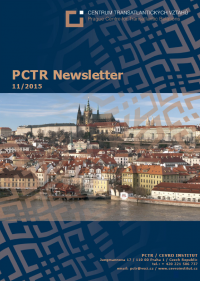
The PCTR offers a possibility to download the latest issue of the PCTR Newsletter. A summary of important news in the field of transatlantic relations is included.
Cyber Security, Global Security, USA, NATO, Russia, EU, United Nations, Middle East, Czech Republic, Poland, Syria, Ukraine, V4, Israel, Asia, Europe
Dec 17, 2015 / Wojciech Konończuk, Tadeusz Iwański, Tadeusz A. Olszański, Piotr Żochowski
Over the past few months Kyiv has initiated a few major changes, but the delays in the reform process are growing.
Dec 14, 2015 / Martin Jirušek, Tomáš Vlček, Hedvika Koďousková, Roger W. Robinson Jr., Anna Leshchenko, Filip Černoch, Lukáš Lehotský, Veronika Zapletalová
Analysis of activities of Russian state-owned companies in natural gas and nuclear sectors in the region of central and Eastern Europe.
Energy Security, Nuclear, Oil and Gas, Russia, EU, Slovakia, Czech Republic, Ukraine, V4, Europe
Dec 13, 2015 / Tomasz Otłowski, Senior Fellow at the Casimir Pulaski Foundation
Moscow has perfectly selected not only the right moment to start its intervention, but also the scope and character. This is mainly in the form of combat and assault aircraft, the machines of the battlefield, and not fighter jets aiming to win dominance i
Dec 03, 2015 / Marcin Kaczmarski, Jakub Jakóbowski, Joanna Hyndle-Hussein
China has presented a far-reaching vision of cooperation with the region in infrastructure, industry and agriculture, taking a step toward shaping the economic structure of the region and giving it a vision of development.
Dec 02, 2015 / Edit Inotai
The political difference between PM Orbán and Chancellor Merkel is evident and it has been aggravated by Orbán’s surprise move to side openly with Horst Seehofer and the CSU in a German domestic debate concerning refugees
Migration, Europe, Democracy, Hungary, EU, Global Security, Economic Security
Nov 20, 2015 / Katarina Svitkova

D.SQ Security Brief
Nov 20, 2015 / Witold Rodkiewicz
The Kremlin has been using the attacks in Paris to persuade the West to fundamentally shift its policy towards Syria – and also towards Russia.
Nov 19, 2015 / Lead Author: Dovilė Šukytė; Authors: Victoria Bucătaru, Simonas Čepėnas, Hennadiy Maksak, Svetlana Rogov, Iurii Vdovenko

Managing Political Instability, Enabling The Role Of Civil Society And Applying Lessons From The Central Eastern European Experience.
Nov 18, 2015 / Dagmar Rychnovska and Jan Daniel
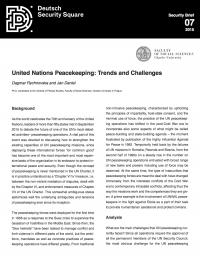
D.SQ Security Brief
Nov 18, 2015 / Multiple Authors
Specialised quarterly publication devoted to cybersecurity
Europe, Poland, EU, Global Security, Cyber Security, Space Security
Nov 18, 2015 / Filip Tuček
A timely analysis of Russia’s hybrid warfare threats from Russia will allow governments in Bratislava, Budapest, Prague, and Warsaw to maximize their countries’ immunity to potential Russian coercion. When Moscow’s toolbox is uncovered (and the cloak of m
Europe, V4, Russia, NATO, Global Security, Economic Security, Cyber Security, Energy Security
Nov 18, 2015 / Grigorij Mesežnikov
CEPI’s monthly digest of news and analysis regarding Russia provides insights on important issues affecting the country
Nov 18, 2015 / Gabriela Mikušová
CEPI’s monthly digest of news and analysis regarding Ukraine provides insights on political developments as well as energy, security and other important issues affecting the country.
Europe, Media, Democracy, Ukraine, Slovakia, EU, Russia, Global Security, Economic Security, Energy Security
Nov 16, 2015 / Jill Dougherty, Riina Kaljurand
Russia’s annexation of Crimea and the use of new, creative forms of warfare
Nov 16, 2015 / Kalev Stoicescu
Paris, the city of lights, arts, romance, fashion and fine cuisine is turning since the beginning of 2015 into a zone of terror and horror.
Nov 16, 2015 / Anna Bulakh
Strengthening Ukraine’s Defence is Still Highly Compelling
Nov 15, 2015 / Prague Centre for Transatlantic Relations (PCTR)

The PCTR offers a possibility to download the latest issue of the PCTR Newsletter. A summary of important news in the field of transatlantic relations is included.
Cyber Security, Global Security, USA, NATO, Russia, Middle East, Slovakia, Czech Republic, Hungary, Poland, Syria, Ukraine, Iran, Israel, Europe, Afghanistan
Nov 10, 2015 / Grzegorz Abgarowicz, Ryszard Antkiewicz, Piotr Ciepiela, Michał Dyk, Dominika Dziwisz, Zbigniew Fałek, Piotr Gajek, Rafał Kasprzyk, Włodzimierz Kotłowski, Mirosław Maj, Andrzej Najgebauer, Dariusz Pierzchała, Aleksander Poniewierski, Maciej Pyznar, Mirosł
The Kosciuszko Institute's Report represents an analysis of the issues concerning the protection of critical infrastructure with a particular emphasis on IT security issues. The primary goal of this Report is to provide actors engaged in the protection of
Space Security, Cyber Security, Global Security, Poland, Europe
Nov 09, 2015 / Jolanta Darczewska, Piotr Żochowski
Building up an image of Russophobic countries is currently instrumental in shaping a neo-imperial political identity among the citizens of the Russian Federation.
Nov 05, 2015 / András György Deák, Tomaš Kulda
Regional gas and energy policies has been moving toward a more transparent, competitive and unified market since the late 2000s.
Europe, Asia, V4, Ukraine, Poland, Hungary, Czech Republic, Slovakia, EU, Russia, NATO, Oil and Gas, Energy Security
Oct 28, 2015 / Wojciech Lorenz, Mário Nicolini
In a completely new security context after Russian agression against Ukraine NATO is reviewing all fundamental principles, which has driven its decisions over the last two decades. Enlargement, the Alliance’s primary policy to realise the vision of a Euro
Europe, V4, Poland, Hungary, Czech Republic, Slovakia, NATO, Global Security
Oct 28, 2015 / Milan Šuplata, Jiří Schneider, Marian Majer
By annexing Crimea and fuelling violence in the Ukraine’s easternmost regions, Russia seriously broke basic principles of international law and shook assumptions about cooperative character of post-Cold War security architecture in Europe. Yet, the seemin
Migration, Europe, V4, Ukraine, Poland, Hungary, Czech Republic, Slovakia, EU, NATO, Global Security
Oct 27, 2015 / Milan Nič
This paper looks more closely at the case of Slovakia and examines prospects for further improvement in bilateral relations with Kosovo. Given the fact that Slovakia along with Greece has been the most flexible of the five holdouts, are they also seen as
Oct 23, 2015 / Marta Jaroszewicz
The year 2015 brought a rapid surge in the number of Ukrainians migrating to the EU, mainly to Poland.
Oct 22, 2015 / Krzysztof Strachota, Marta Jaroszewicz, Artur Ciechanowicz
In recent weeks, cooperation with Turkey has been gaining strategic importance for the European Union and its member states in solving the migration crisis.
Oct 16, 2015 / Józef Lang
The successes of the Taliban and its allied forces in northern Afghanistan have caused nervous reactions in the Central Asian countries
Oct 14, 2015 / Wojciech Lorenz and Mário Nicolini
Before the NATO summit in Warsaw in 2016, the allies are confronted with a new security paradigm and face a strategic dilemma: how to reconcile the commitment to the Open Door Policy with the political and military reality in which Russia remains an impor
Oct 12, 2015 / Stanislav Balík, Tomáš Pojar, Ivo Pospíšil, Michael Romancov, Dušan Tříska, Michal Vodrážka, Alexandr Vondra

The PCTR realized in the academic year 2014/2015 the project „Czechoslovakia Transition to Democracy: Recommendations for the North Korea Peace-seeking Process“. One of the aims of this project was to develop a monograph, which is now available.
Oct 12, 2015 / Alena Kudzko
Once the symbol of authoritarian evil in Europe, Belarus is set to vote on Sunday, October 11 in its next presidential elections, which are unlikely to be any more democratic or fair than the previous round held in 2010.
Oct 12, 2015 / Balázs Jarábik
In his new analysis of the developments in Ukraine, the author scrutinizes the prospects for reforms and political and economic stabilization in Ukraine.
Oct 05, 2015 / Aleksandra Jarosiewicz, Krzysztof Strachota
Turkey plays a key role in the crisis caused by the migration of refugees from Syria.
Sep 29, 2015 / Frank Markovic
The Visegrad Four belonged to the small group of states that opposed the quotas from the very beginning. Their stance came at a price. The vote on Tuesday is particularly damaging for the V4 not least because it has undermined the unity of the block.
Migration, Europe, V4, Poland, Hungary, Czech Republic, Slovakia, EU
Sep 24, 2015 / Martin Michelot
As time passes and migratory pressures continue to increase, with another estimated 6000 asylum-seekers having made their way into Hungary yesterday, any meeting of European decision-makers in Brussels is observed with increased scrutiny and expectations
Migration, Europe, V4, Poland, Hungary, Czech Republic, Slovakia, EU
Sep 24, 2015 / Jana Kobzova
The next few months were going to be difficult for Ukraine even without last week’s events: the country’s economy is in trouble and the war in its eastern provinces continues with no end in sight. Even before last week, the best Ukraine could hope for in
Sep 24, 2015 / Frank Markovic
How can the V4 countries coordinate their positions towards the refugee crisis and the EU referendum in the UK?
Migration, Europe, V4, Poland, Hungary, Czech Republic, Slovakia, EU
Sep 24, 2015 / The European Values Think-Tank, Central European Policy Institute
The European Values Think-Tank and the Central European Policy Institute put together a group of prominent Czech and Slovak experts to come up with a document refuting the most frequent myths and falsehoods about Ukraine and set the record straight.
Europe, Media, Ukraine, Czech Republic, Slovakia, Russia, Global Security
Sep 24, 2015 / Michal Skala, Júlia Miklasová
Last year’s annexation of Crimea by Russia and ensuing war in eastern Ukraine created a new momentum in the region, challenging the long-existing status quo. The changed situation has particularly damaged relations between Ukraine and de facto authorities
Sep 21, 2015 / Jaan Murumets
On the web site of the Institute of Modern Russia, a New York-based think-tank, Matthew Bodner published on August 26 an analysis of Russia’s military capabilities that could be employed in an eventual adventure in the Baltic Sea region. Everyone familiar
Sep 21, 2015 / Martin Hurt
For Sweden’s Social Democrats, it is a noteworthy change in rhetoric, as they built their past arguments for opposing NATO accession on perceived US dominance of the alliance and the fact that NATO deterrence is partially based on nuclear weapons.
Sep 21, 2015 / Anna Bulakh
Liquefied natural gas (LNG) can become a key alternative source of supply in the event of serious pipeline gas shortfalls across the EU. However, for this to happen successfully, the EU needs to develop a Europe-wide LNG strategy based on a common approac
Sep 21, 2015 / Maksym Bugriy
As the Russian-Ukrainian conflict continues to rage on in Donbas (Pravda.com.ua, August 11), a popular sentiment regarding Kyiv’s relationship with NATO is likely to revive debates on Ukraine’s “Finlandization”—a strategic option notably proposed by Dr. Z
Sep 21, 2015 / Helga Kalm
The latest yearbook published by the Internal Security Service (ISS), Estonia’s counterintelligence agency, devotes a whole chapter to combating terrorism.
Sep 21, 2015 / Kalev Stoicescu
Most NATO members continue to reduce their defence budgets, in spite of Russia’s assertiveness, continued aggression against Ukraine and the risk of conflict spill over. Russia, pretending that the West is its worst enemy, is doing quite the opposite, hav
Sep 21, 2015 / Emmet Tuohy
ICDS researcher Emmet Tuohy writes on on recent Baltic corruption scandals. Tuohy discusses whether it is possible to view the Maģonis case not as a sign of widespread corruption at the highest levels of Baltic business and politics, nor as a security ris
Sep 18, 2015 / Prague Centre for Transatlantic Relations (PCTR)
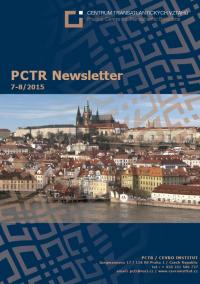
The PCTR offers you a possibility to download the latest issue of the PCTR Newsletter
Global Security, USA, NATO, Russia, EU, Middle East, Czech Republic, Asia, Europe
Sep 10, 2015 / Petr Spelda

D.SQ Security Brief
Global Security, NATO, EU, Middle East, Democracy, Media, Europe
Sep 04, 2015 / Wojciech Konończuk
The comprehensive reform of the gas sector is one of the most important and most difficult reforms Ukraine has to implement.
Aug 28, 2015 / Marta Szpala, Marta Jaroszewicz
When the mounting scale of the influx of refugees to Europe, their determination and the weakness of the Macedonian state are all taken into account, a further escalation of the crisis should be expected, not only in Macedonia but also in Serbia.
Aug 14, 2015 / Krzysztof Strachota
The world is fascinated with the phenomenon of Islamic State, failing to notice that the Middle East is going through a crisis – and this is the main challenge.
Aug 07, 2015 / Yury Fedorov
At the time, when the world is remembering the enormous tragedy of Hiroshima and Nagasaki, Yury Fedorov in his new policy paper analyses what consequences might the looming crisis of the Intermediate-Range Nuclear Force Treaty have.
Aug 07, 2015 / Jan Daniel

European Security Spotlight No. 13
Democracy, Human Rights, Africa, Middle East, EU, Global Security
Jul 29, 2015 / Adam Balcer, Spasimir Domaradzki, Marta Szpala
The region needs the new impulse for institutional transformation and a change of the development model.
Jul 29, 2015 / Attila Kovács
Comparative Analysis of the Legislative Instruments of the 2013 Common Agricultural Policy Reform
Jul 24, 2015 / Nikola Trendov, Laszlo Vasa
The Case of Macedonia, Montenegro and Serbia
Jul 24, 2015 / Márton Ugrósdy
New analysis by Márton Ugrósdy researcher of Institute for Foreign Affairs and Trade
Jul 21, 2015 / Martin Jirušek, Tomáš Vlček, Hedvika Koďousková, Filip Černoch, Lukáš Lehotský, Veronika Zapletalová, Anna Leshchenko
Executive summary of a broader study focusing on assessment of the behaviour of Russian state-owned companies in natural gas and nuclear sectors in Central and Eastern Europe and Asia
Energy Security, Oil and Gas, Russia, EU, Slovakia, Czech Republic, Hungary, Poland, Ukraine, V4, Europe
Jul 21, 2015 / Filip Černoch, Břetislav Dančák, Jan Osička
Assessment of German
Jul 13, 2015 / Prague Centre for Transatlantic Relations (PCTR)

The Prague Centre for Transatlantic Relations offers a possibility to download the latest issue of the PCTR Newsletter.
Economic Security, Global Security, USA, NATO, Russia, EU, Slovakia, Czech Republic, Hungary, Poland, Ukraine, Europe
Jul 10, 2015 / Jakub Groszkowski
Since the beginning of the Ukrainian-Russian conflict, the position of Slovakia’s left-wing government towards Russia has been ambiguous.
Jul 08, 2015 / Expert Group

Regular weekly digest of notable local and international news, as well as analyses covering the Ukraine crisis
Global Security, NATO, Russia, EU, Ukraine, Democracy, Europe
Jul 08, 2015 / Joerg Forbrig
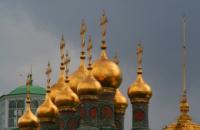
This conflict will be shaped by the degrees to which both sides are able to maintain their internal cohesion. It may become a race against time, with both sides banking on the cohesion of the other fading before their own ranks break apart.
Jul 03, 2015 / Michal Smetana

D.SQ Security Brief
Jul 01, 2015 / Tomasz Piechal
The overriding goal of the governments of the so-called "People's Republics" is to maintain and develop their military potential.
Jul 01, 2015 / PSSI, Faculty of Social Studies of the Masaryk University
Executive summary of a joint study presented during the conference "Energy Security in Central and Eastern Europe and the Operations of Russian State-Owned Energy Enterprises" is now available.
Jun 30, 2015 / Jakub Zahora
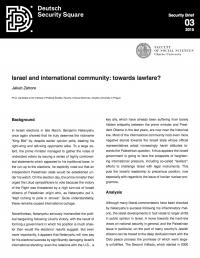
D.SQ Security Brief
Global Security, USA, EU, Iran, Israel
Jun 30, 2015 / Dagmar Rychnovska
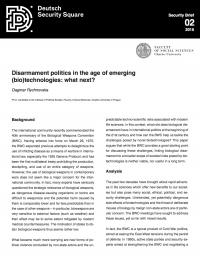
D.SQ Security Brief
Jun 16, 2015 / Dániel Bartha, Milan Nič, Maria Staszkiewicz, Milan Zubíček, Marian Majer,

In a global marketplace, the Visegrad Group countries are very small markets. But taken together, they present an interesting, underdeveloped market of over 65 million customers whose digital economic potential is only starting to be exploited.
Jun 10, 2015 / Dániel Bartha, Jakub Kufčák, Marian Majer, Mário Nicolini
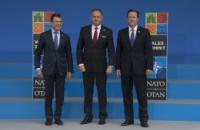
NATO seems to be getting back to its old routines and the Wales commitments are slowly being pushed to the backburner. This is shocking, given that Russia’s military aggression against Ukraine continues unabated.
Jun 09, 2015 / Ivana Smolenova
This paper provides an overview of the pro- Russian disinformation activities in the Czech Republic and Slovakia, identifies frequently used narratives, and brings attention to the similarity of arguments and messages used by a pro-Russian media with no f
Jun 03, 2015 / Vít Dostál and Ondřej Mocek
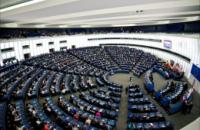
The European Parliament has never played such an important role in the EU’s decision-making; the four Visegrád countries (V4) could benefit from the aggregated strength of their MEPs.
May 26, 2015 / Marta Jaroszewicz, Piotr Żochowski
From a public opinion point of view, corruption has been the gravest problem of today’s Ukraine, excepting the armed conflict in the east of the country.
May 20, 2015 / Tomáš A. Nagy
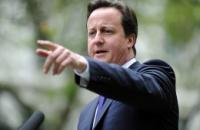
Even with a decimated political opposition, Prime Minister David Cameron will have to navigate his country through the uncharted waters of a likely governmental reform process and a likely controversial and divisive EU membership referendum.
May 20, 2015 / Expert Group
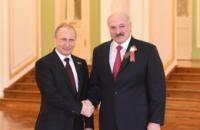
Since the EU’s Eastern partnership Summit in Vilnius Belarus proved to be a master of balancing between East and West, yet it is currently between a rock and a hard place.
May 14, 2015 / Benjamin Tallis

European Security Spotlight No. 12
Apr 30, 2015 / Kateřina Lišaníková

CENAA is glad to present you a brand new issue of the Policy Papers series, called “The Growing Popularity of Far-Right Swedish Democrats”. The article is written by Kateřina Lišaníková.
Apr 27, 2015 / Tomasz Dąborowski
The debate about the expansion of the gas infrastructure in central and south-eastern Europe.
Apr 24, 2015 / Konrad Popławski
Germany is working on a plan which would allow Greece to remain in the eurozone, even if the government in Athens announces that the country is bankrupt.
Apr 17, 2015 / Benjamin Tallis

European Security Spotlight No. 9
Apr 17, 2015 / Benjamin Tallis

European Security Spotlight No. 8
Apr 16, 2015 / Michal Kořan, Petr Nečas, Jan Österreicher, Bohuslav Pernica, Jiří Šedivý, Pavel Štalmach, Alexandr Vondra
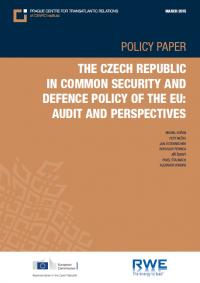
The Prague Centre for Transatlantic Relations of the CEVRO Institute (PCTR) is delighted to present the new Policy Paper entitled
Global Security, USA, NATO, Russia, EU, Middle East, Czech Republic, V4, Africa, Europe
Apr 15, 2015 / Expert Group
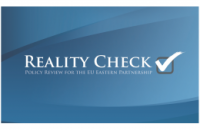
Ukraine Reality Check - Policy brief
Apr 14, 2015 / Edited by Marian Majer
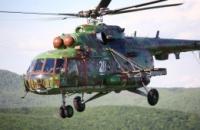
DAV4 III Expert Group Report
Global Security, Slovakia, Czech Republic, Hungary, Poland, V4
Apr 10, 2015 / Prague Centre for Transatlantic Relations (PCTR)

The Prague Centre for Transatlantic Relations offers a possibility to download the latest issue of PCTR Newsletter.
Economic Security, Global Security, USA, NATO, Russia, EU, Middle East, Czech Republic, Poland, Ukraine, Democracy, Israel, Europe
Apr 06, 2015 / Kamil Gregor, Juraj Medzihorský, Peter Spáč, Michal Škop, Petr Voda
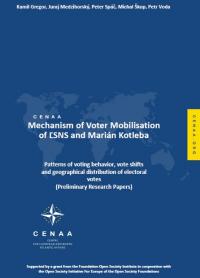
CENAA would like to present a set of four comprehensive research papers
Mar 25, 2015 / Aliaksei Kazharski
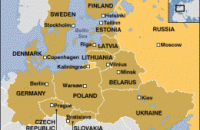
Aliaksei Kazharski provides his insight on political and security implications of Kaliningrad’s geographical and historical peculiarities.
Mar 23, 2015 / Róbert Ondrejcsák

CENAA is delighted to present a new issue of the Policy Paper entitled “Modernization of Slovak Armed Forces: Reasons, Main Weapons Systems, Principles and challenges“. Róbert Ondrejcsák, the director of CENAA, analyzes the process of modernization of th
Mar 19, 2015 / Ewa Fischer
The Kremlin has moved away from undertaking structural changes and unpopular social reforms (such as pension reform), in fear of a rise in social discontent.
Mar 18, 2015 / Markéta Wittichová

European Security Spotlight No. 7
Mar 17, 2015 / Dániel Bartha, Milan Nič
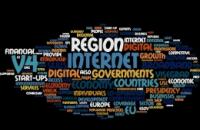
Fragmented digital agenda in the V4 countries: how to go regional?
Mar 14, 2015 / Prague Centre for Transatlantic Relations (PCTR)

The PTCR offers you to download the second PCTR Newsletter issue in 2015, which contains not only information about PCTR events, but especially about the most important news from the field of Euro-Atlantic relations, which happened in February.
Energy Security, Global Security, Oil and Gas, USA, NATO, Russia, EU, Middle East, Czech Republic, Poland, Syria, Ukraine, Africa, Europe
Mar 11, 2015 / Ben Nimmo
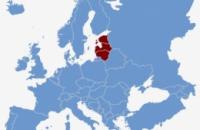
Destabilization may be Russia’s aim, but it is unlikely to follow the Ukrainian scenario.
Mar 11, 2015 / Jaroslav Naď, Marian Majer, Milan Šuplata

Security and Defense Study
Mar 11, 2015 / Milan Šuplata, Jaroslav Naď

Security and Defence Policy Brief
Mar 11, 2015 / Milan Šuplata

Security and Defense Policy Brief
Feb 25, 2015 / Rudolf Fürst

Čína se dosud nebývalou měrou začala zajímat o postkomunistickou část Evropy. Tento zájem je motivován ekonomicky, obavy z čínského „rozděl a panuj“ v EU jsou zatím neúměrné.
Global Security, EU, V4, Asia
Feb 24, 2015 / Anna Kwiatkowska-Drożdż, Kamil Frymark
Since the beginning of the Russian-Ukrainian conflict, profound changes in Germany’s thinking about Russia can be observed.
Feb 20, 2015 / Wojciech Konończuk
The still strong oligarchic system will be one of the impediments in the process of reforming the Ukrainian state.
Feb 20, 2015 / Andrzej Sadecki
With Putin's visit to Budapest, Russia has shown that it is able, regardless of sanctions, to build close co-operation with those EU member states which are interested in it.
Feb 19, 2015 / Marcin Kaczmarski
The New Silk Road idea is a flexible formula used by China in its dialogue with many other countries.
Feb 18, 2015 / Students
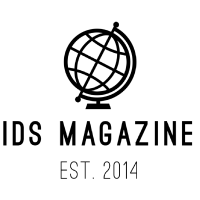
Grassroots analyses providing original thought on international relations
Feb 18, 2015 / John K. Glenn, Bruce P. Jackson, Lukas Kovanda, A. Wess Mitchell, Cameron Munter, Tomas Pojar, Leah Scheunemann, Jiri Schneider, Alexandr Vondra
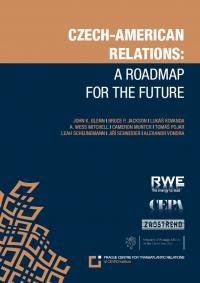
The Prague Centre for Transatlantic Relations of the CEVRO Institute (PCTR) published with the kind support of a non-profit organization Zaostřeno, o.p.s. and RWE Česká republika a bilingual publication Czech – American relations: A roadmap for the future
Global Security, Nuclear, Oil and Gas, USA, NATO, Russia, EU, United Nations, Middle East, Slovakia, Czech Republic, Hungary, Poland, Ukraine, Democracy, Education, Human Rights, V4, Europe, Afghanistan, Economic Security, Energy Security
Feb 13, 2015 / Vít Beneš

(in Czech) Přinášíme Vám nové video z populární série Pětiminutovky ze světové politiky.
Feb 13, 2015 / Benjamin Tallis

European Security Spotlight No. 6
Feb 08, 2015 / Jan Váška
Many policy areas are up for discussion, from the working time directive to financial regulation, but symbolic issues will be important as well.
Feb 05, 2015 / Radomír Špok, Zuzana Kasáková, Petr Volek
Reccomendations from the round table on the policy of cohesion organised as a part of the National Convent on the EU.
Feb 05, 2015 / Henry Plater-Zyberk
The publication "Russia's Contribution as a Partner in the War on Terrorism" was written by PSSI's Senior Research Fellow Henry Plater-Zyberk for the Strategic Studies Institute(SSI), the U.S. Army's institute for geostrategic and national security resear
Feb 03, 2015 / Erzsébet N. Rózsa, Anett Arany, Máté Szalai
Direct and indirect effects of the emergence of the Islamic State on international politics - including question of refugees, situation of Christians in the Middle East, foreign fighters from Europe and rivalry among the radical Islamist networks
Feb 02, 2015 / Erzsébet N. Rózsa and Anna Péczeli
A new study written by Erzsébet N. Rózsa, senior researcher of Institute for Foreign Affairs and Trade and Anna Péczeli is now available on the website of SIPRI.
Feb 02, 2015 / András Rácz, András Deák, István Gyarmati, Roland Kováts
Summary of the panel discussion on Ukraine
Energy Security, Global Security, Russia, EU, Hungary, Ukraine, V4, Europe
Feb 02, 2015 / Edit Inotai, András Rácz
Analysis on the upcoming visits of Angela Merkel and Vladimir Putin to Hungary
Jan 30, 2015 / John K. Glenn, Bruce P. Jackson, Lukáš Kovanda, A. Wess Mitchell, Cameron Munter, Tomáš Pojar, Jiří Schneider, Alexandr Vondra
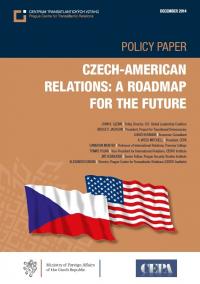
The Prague Centre for Transatlantic Relations of the CEVRO Institute (PCTR) organized in 2014, in cooperation with the American Think-tank Center for European Policy Analysis (CEPA), a project which was supported by the Czech Ministry of Foreign Affairs.
Energy Security, Economic Security, Global Security, Nuclear, Oil and Gas, USA, NATO, Russia, EU, Czech Republic, Poland, Ukraine, Democracy, Human Rights, V4, Europe
Jan 30, 2015 / Radomír Špok
What are Czech targets for Europe 2020? Is the Czech Republic able to fulfill them?
Jan 30, 2015 / Miroslav Tůma
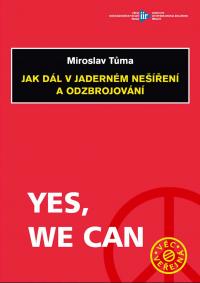
Miroslav Tůma: Strukturu knihy tvoří tři hlavní tematické bloky, jež jsou zdánlivě odlišné: Události a aktivity ovlivňující jaderně odzbrojovací a neproliferační proces (2011–2014), Klíčová regionální jaderně odzbrojovací a neproliferační problematika na
Jan 29, 2015 / Andrej Findor

Policy Paper presents a basic conceptual framework to the theory of radicalization and de-radicalization. This framework serves as a theoretical basis for studying the development of electoral behaviour as well as for designing interventions on the local
Jan 28, 2015 / Vít Beneš
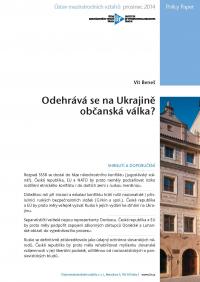
Čím ukrajinská válka není? A čím může být? Přečtěte si policy paper Víta Beneše.
Jan 08, 2015 / Prague Centre for Transatlantic Relations (PCTR)

The Prague Centre for Transatlantic Relations offers a possibility to download the latest issue of PCTR Newsletter.
USA, NATO, Russia, EU, United Nations, Middle East, Czech Republic, Europe, Afghanistan, Energy Security
Nov 20, 2014 / Prague Centre for Transatlantic Relations (PCTR)

PCTR Newsletter
Economic Security, Global Security, USA, NATO, Russia, EU, Middle East, Czech Republic, Ukraine, Israel, Asia, Europe, Afghanistan
Sep 30, 2014 / Cameron Munter
The seventh policy paper of the Connection Prague – Washington: How to strengthen transatlantic tie between the Czech Republic and the United States of America… project.
Economic Security, Global Security, USA, NATO, Russia, EU, Czech Republic, Ukraine, Democracy, Europe
Sep 30, 2014 / A. Wess Mitchell and Leah Scheunemann
The sixth policy paper of the Connection Prague – Washington: How to strengthen transatlantic tie between the Czech Republic and the United States of America… project.
Global Security, USA, NATO, Russia, EU, Middle East, Slovakia, Czech Republic, Hungary, Ukraine, Europe
Sep 30, 2014 / John K. Glenn
The PCTR offers you the possibility to download the fifth policy paper of the Connection Prague – Washington: How to strengthen transatlantic tie between the Czech Republic and the United States of America… project.
USA, NATO, Russia, EU, Czech Republic, Ukraine, Europe, Global Security
Sep 30, 2014 / Bruce P. Jackson
The PCTR offers you the possibility to download the fourth policy paper of the Connection Prague – Washington: How to strengthen transatlantic tie between the Czech Republic and the United States of America… project.
Energy Security, Global Security, USA, NATO, EU, Czech Republic, Ukraine, Democracy, Europe
Sep 04, 2014 / Marian Majer
On Thursday, the leaders of 28 countries will meet at the next NATO summit. A year ago, it seemed that the completion of the ISAF mission would be its main topic
Sep 04, 2014 / Dominik Jankowski
The current Russian-Ukrainian conflict is a game changer for European security. The entire European security architecture has trembled as the eastern flank of the continent has been destabilised. If the conflict cannot act as a unifier for the transatlant
Aug 26, 2014 / Tomáš Profant, Patryk Toporowski
In their recent policy paper, Tomáš Profant and Patryk Toporowski of the Polish Institute of International Affairs find some similarities between Poland and the Czech Republic in their approaches to the Banking Union and recommend a cooperation of both co
Jul 29, 2014 / Prague Centre for Transatlantic Relations (PCTR)

PCTR Newsletter
NATO, Russia, EU, Middle East, Czech Republic, Syria, Ukraine, Israel, Europe
Jul 01, 2014 / PSSI Prague
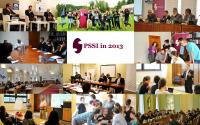
PSSI just published its bi-annual 2012&2013 report. The report includes information about all activities, conferences, publications and educational programs undertaken by PSSI in the last 2 years
Energy Security, Space Security, Global Security, Czech Republic
Jun 21, 2014 / Padrtová Barbora (edt.)
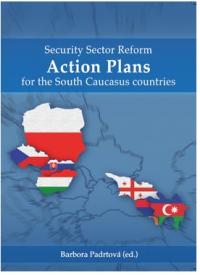
Publication includes tailor-made recommendations in the field of Security Sector Reform (SSF) for individual South Caucasus countries based on best and worst practices of V4 countries.
Jun 16, 2014 / Centrum transatlantických vztahů (PCTR)
Zkrácený přepis přednášky „Blízký východ - znovuobnovení stability nebo pokračující chaos?“ z 13. února 2014
Global Security, USA, Syria, Democracy, Human Rights, Israel, Europe
Jun 16, 2014 / Lukáš Kovanda (ECONOMIC CONSULTANT)

The third policy paper of the Connection Prague – Washington: How to strengthen transatlantic tie between the Czech Republic and the United States of America… project
Jun 16, 2014 / Tomáš Pojar (VICE PRESIDENT FOR INTERNATIONAL RELATIONS, CEVRO INSTITUTE)

The second policy paper of the Connection Prague – Washington: How to strengthen transatlantic tie between the Czech Republic and the United States of America… project
Jun 16, 2014 / Jiří Schneider (SENIOR FELLOW AND DIRECTOR OF SPECIAL PROJECTS, PSSI)

The first policy paper of the Connection Prague – Washington: How to strengthen transatlantic tie between the Czech Republic and the United States of America… project.
Global Security, Nuclear, USA, NATO, Slovakia, Czech Republic, Europe
Jun 16, 2014 / Prague Centre for Transatlantic Relations (PCTR)
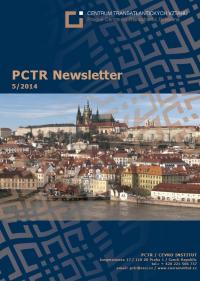
PCTR Newsletter
Jun 14, 2014 / Veronika Macková, CENAA
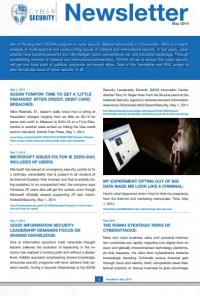
What is new in Cyber world in May 2014?
Jun 14, 2014 / Vicenová Radka, CENAA
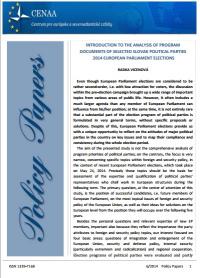
Even though European Parliament elections are considered to be rather second-order, i.e. with low attraction for voters, the discussion within the pre-election campaign brought up a wide range of important topics from various areas of public life.
May 28, 2014 / Petr Pavlik, Department of World Economy, Faculty of International Relations, University of Economics, Prague

This publication is a collection of papers presented at the annual conference of the European Association of Development Research and Training Institutes organised by Faculty of Economics and the Faculty of International Relations, University of Economics
EU, Czech Republic, Africa, Asia, Europe